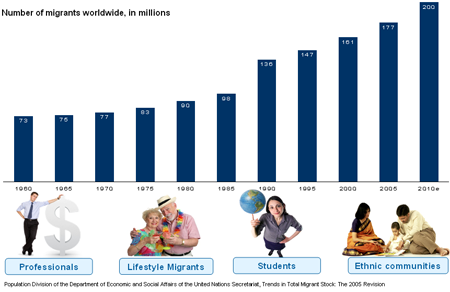
Many experts and civilians throughout the world believe that China will be a major force in the near future. PricewaterhouseCoopers (PWC) recently arrived at that same conclusion with concrete numbers to back their contention up and this is what I think as well, for several reasons. China will become the largest economic entity on the planet by 2025, the accounting company said in recent report.
First of all we have to take into consideration that Chinas economic development over the past two decades has surprised both her critics and supporters. Since 1978 when china launched its “Four Modernizations” reform process under the leadership of Deng Xiaoping, growth has averaged 9.5% annually. Involving his future not merely of interest of experts, as geopolitical balance has direct consequences for every part of the world.
Another import issue to considerate is the new Silk Road that describes the flourishing economic and cultural rise of china. The scenario reflects China’s peaceful geopolitical integration and its sizeable role in the exchange of goods, services, investments and ideas.
Here I attach some predictions about how things are going to be in the next years with China if this continue being as is going now.
“2011-2020: china actively engages with the world. It plays a constructive role by helping with peacekeeping, seeking to reduce the dangers of conflict in Asia, and even taking important steps with the international community to improve climate security and reduce the global environmental footprint of energy use. At the same time domestic reforms and a growing middle class provide the building blocks to develop the Chinese market. This allows for a measure of social security and resources redistribution within the country.”
“2021-2025: A growing appetite for political freedom emerges as media controls diminish, individual rights and civil liberties improve and the separation of the judicial, legislative and executive branches is openly discussed. Some challenges remain as average incomes are still below those of developed countries and the problems related to an ageing population need addressing. However, it is clear that by 2025 china is on its way to achieving balanced development and sustained high growth, and is a respected global actor.”
References
http://www.moodyseconomy.com
http://www.weforum.org
http://www.pwc.com/



